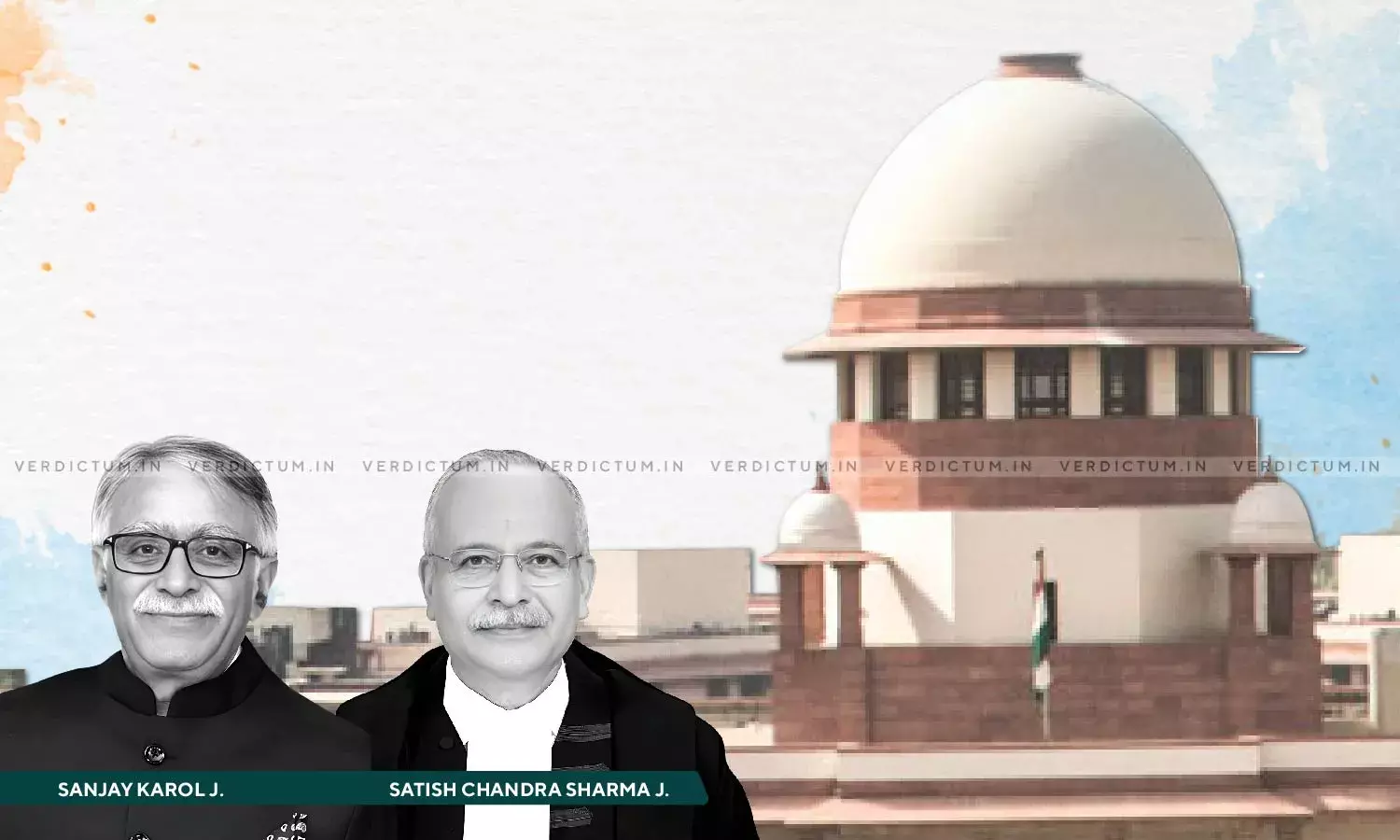Discretionary Power Of Granting Bail Not Be Used Arbitrarily: SC Sets Aside Bail Granted To Accused In A Broad Daylight Murder Case

The Supreme Court reiterated that grant of bail involves the exercise of a discretionary power which ought not to be used arbitrarily, capriciously; and injudiciously.
The Court was hearing a criminal appeal against a bail order in which respondent, Vivek Pal and another Punit Pal were accused of broad daylight murder which led to the closure of a market for a prolonged period of 10 days due to their overwhelming influence in the area.
The bench of Justice Sanjay Karol and Justice Satish Chandra Sharma observed, “It is well settled that the grant of bail involves the exercise of a discretionary power which ought not to be used arbitrarily, capriciously; and injudiciously.”
Senior Advocate Sudhir Kumar Saxena appeared for the Respondent.
Brief Facts-
It was alleged by the Appellant, Ramayan Singh, who is also the original complainant that he along with his uncle (deceased) and his driver were returning from Bankati Bazar when their vehicle was stopped by the accused persons, respondent and Punit Pal. The accused persons verbally abused the Deceased and proceeded to shatter the windows of the vehicle with iron rods. Subsequently, they dragged the Deceased out of the vehicle and physically assaulted the Deceased with iron rods, hockey sticks and bats to kill him. It was also alleged that the accused snatched the mobile phones of the Deceased and the driver; as well as a gold chain and ran away from the spot of the incident. Later, his uncle succumbed to injuries. The trial Court rejected the bail however, the High Court allowed the bail application. Hence, this appeal.
The Court mentioned the Supreme Court decision in Prasanta Kumar Sarkar v. Ashis Chatterjee, (2010) 14 SCC 496, where the Court enunciated certain parameters on which the correctness of an order granting bail must be evaluated and quoted, “However, it is equally incumbent upon the High Court to exercise its discretion judiciously, cautiously and strictly in compliance with the basic principles laid down in a plethora of decisions of this Court on the point.”
The Court further mentioned the decision in Mahipal v. Rajesh Kumar, (2020) 2 SCC 118, where the Supreme Court succinctly summarised the position qua interference by it vis-a-vis an order granting bail and quoted, “However, where the discretion of the High Court to grant bail has been exercised without the due application of mind or in contravention of the directions of this Court, such an order granting bail is liable to be set aside. The Court is required to factor, amongst other things, a prima facie view that the accused had committed the offence, the nature and gravity of the offence and the likelihood of the accused obstructing the proceedings of the trial in any manner or evading the course of justice.”
The Court noted that Vivek Pal and Punit Pal were charged under Sections 147, 148, 149, 323, 504, 506, 427, 394, 411, 302 and 120B IPC based on the materials on record including but not limited to the post-mortem report and statements of witnesses.
The Court further noted that both the accused persons have attempted to intimidate the Appellant and other identified witnesses to de-rail the trial in the present case.
Accordingly, the Court stated that the High Court ought not to have granted Respondent and Punit Pal bail about the proceedings emanating from the FIR on account of (i) the seriousness of the crime; (ii) the conduct of the accused person(s) and (iii) the overall impact of the crime on society at large.
Finally, the Court set aside the bail orders of Vivek Pal and Punit Pal.
Consequently, the Count allowed the appeal.
Cause Title: Ramayan Singh v. State of U.P. (Neutral Citation: 2024 INSC 323)
Appearance:
Senior Advocate Sudhir Kumar Saxena

